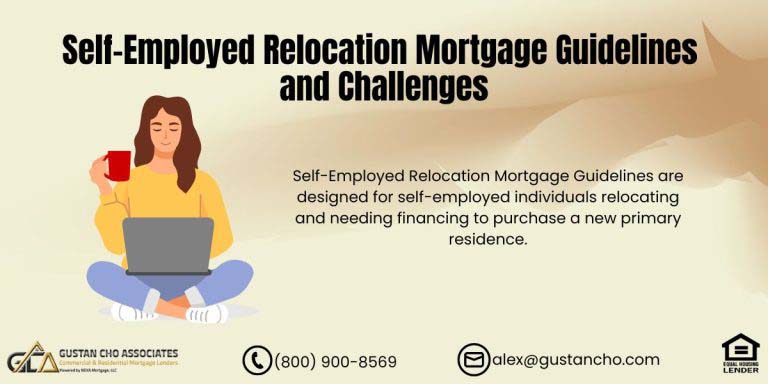Can You Get Denied for a Mortgage With Good Credit?
If you’re asking yourself, “Can you get denied for a mortgage with good credit?” you’re not alone. Many homebuyers assume that a high credit score is their golden ticket to mortgage approval. While good credit is a big factor, it’s not the only piece of the puzzle. In fact, plenty of borrowers with excellent credit scores face mortgage denials due to other issues in their financial profile.
This guide will explain why this happens, what lenders look for, and how to avoid common pitfalls. Let’s set the record straight and help you take the right steps to secure your dream home.
Why Good Credit Isn’t Enough for Mortgage Approval
A good credit score shows lenders you’ve been responsible with credit in the past, but mortgages involve much more than just a number. Here are some key reasons why you might get denied for a mortgage even if you have a stellar credit score:
1. High Debt-to-Income Ratio (DTI)
Your debt-to-income ratio measures your monthly debt obligations against your gross monthly earnings. Lenders rely on this figure to assess whether you can manage the mortgage payment. Even with a strong credit score, a high DTI might prevent you from qualifying. For instance:
- FHA loans typically require a DTI below 43%, though exceptions are sometimes made.
- Conventional loans often prefer a DTI below 36%. If you have a lot of debt (like student loans, car payments, or credit cards), this could hurt your chances—even if you always pay on time.
2. Insufficient Income
You might have an impressive credit score, but lenders need to see steady, reliable income to approve your loan. You could get denied if your income is too low to support the loan amount you’re applying for. Self-employed borrowers, seasonal workers, or those with irregular income streams often face challenges in this area.
3. Unresolved Credit Issues
Even with a high credit score, your credit report could reveal red flags, such as:
- Recent late payments: A single late payment in the past 12 months might raise concerns.
- Credit disputes: Open credit disputes must often be resolved before the mortgage process can move forward.
- Collections or charge-offs: Lenders may deny your loan if you have unresolved debts, even if your score is high.
Worried About Being Denied for a Mortgage Despite Good Credit? We Can Help!
Contact us today to understand why your mortgage application may have been denied and how we can help you get approved.
What Do Mortgage Underwriters Look At?
Underwriters are like detectives for your financial history. Their job is to analyze every aspect of your finances to ensure you’re a reliable borrower. Here’s what they scrutinize:
Credit Report and Payment History
Your credit score is merely the initial benchmark. Underwriters examine your payment history more closely to identify trends. Even if you have improved your credit, past problems such as:
- A history of late payments
- Multiple missed payments
- Unpaid collections or charge-offs
- Can signal financial instability.
Assets and Reserves
If something unexpected happens, lenders want to know if you have enough cash reserves to cover your mortgage payments. Savings for 3-6 months’ worth of payments are often required.
Employment and Income Stability
Regular job changes or periods of unemployment can cause lenders to hesitate, even if you’re currently making a decent income. A consistent income showcases your capability to handle a long-term financial commitment like a mortgage.
Property Type and Condition
Not all properties qualify for all loans. For example:
- Fixer-uppers may require special loans like FHA 203(k).
- Condotels or non-traditional homes might need non-QM loans (non-qualified mortgages). Even with good credit, the property itself can lead to a denial.
Common Reasons for Mortgage Denials With Good Credit
Here’s a closer look at why borrowers with excellent credit still face denials—and how you can avoid them:
Late Payments in the Past Year
Late payments stick out like a sore thumb on your credit report. Even one can cause problems. To mitigate this:
- Write a letter of explanation (LOE) that outlines the reasons for the delayed payment and describe the measures you have implemented to prevent a recurrence.
- Stay current on all bills moving forward—this is critical!
Unresolved Credit Disputes
Disputes temporarily boost your credit score but can derail your mortgage process. Lenders often require all disputes to be resolved before approval. If disputes lower your score once resolved, it could impact your loan eligibility.
High DTI From Student Loans
Student loans in deferment or forbearance are still factored into your debt-to-income ratio (DTI) calculation. Certain loan programs permit lower payment amounts through income-driven repayment plans, which can assist in reducing your DTI.
Recent Large Purchases or New Debt
Taking out a new car loan, opening a credit card, or financing furniture before closing can change your financial profile. Lenders often recheck your credit before final approval so that any new debt can lead to denial—even after pre-approval.
How to Avoid Mortgage Denial With Good Credit
Securing mortgage approval takes more than just good credit. Here are actionable tips to improve your chances:
1. Check Your DTI
Before applying for a home loan, you need to calculate your debt-to-income ratio:
- Add up all your monthly debt payments (car loans, student loans, credit cards, etc.).
- Take the total and divide it by your gross monthly income. If your DTI is too high, focus on paying down debt or look for lenders with higher DTI limits.
2. Resolve Credit Issues Early
If you have disputes, collections, or charge-offs on your credit report:
- Resolve disputes and remove them before applying.
- Avoid making payments on very old collections unless required, as this can negatively impact your credit score.
3. Document Your Income
Lenders often require two years of income history, but exceptions exist for unique circumstances. Self-employed borrowers should ensure they have:
- Two years of tax returns
- Profit and loss (P&L) statements
- Bank statements to support their income
4. Work With a Lender With No Overlays
Some lenders impose stricter rules (overlays) than the loan program requires. At Gustan Cho Associates, we specialize in no-overlay lending. This means we approve loans that other lenders turn down.
Denied for a Mortgage Even with Good Credit? Let’s Find Out Why!
Reach out now to learn about your options and how we can help you qualify for a mortgage.
2024 Mortgage Guidelines You Need to Know
Updated FHA Guidelines
In 2024, FHA loans remain a favored option for borrowers who may have lower down payments and face credit difficulties. Important updates consist of:
- Higher loan limits to match rising home prices.
- More flexibility for borrowers with recent credit challenges.
Non-QM Loans for Unique Scenarios
Non-QM loans are a growing option for borrowers who don’t fit the traditional mold, such as:
- Self-employed individuals using bank statement loans.
- Investors using DSCR loans based on rental income.
Alternatives to Traditional Credit
For borrowers with no credit score, lenders may accept alternative credit sources like rent or utility payments.
Can You Still Get a Mortgage With Past Credit Issues?
Yes! Many borrowers with past issues like bankruptcy, foreclosure, or short sales qualify for mortgages after meeting specific waiting periods:
- FHA Loans: 1 year after Chapter 13 bankruptcy or 2-3 years after Chapter 7 bankruptcy.
- Conventional Loans: 4 years after Chapter 7 bankruptcy or 2 years after a short sale.
Final Thoughts: Can You Get Denied for a Mortgage With Good Credit?
The short answer is yes, you can. But the good news is that you can proactively improve your approval odds. By effectively handling your debt, addressing credit concerns, and working with a lender who understands your unique situation, you can prevent unexpected challenges and obtain the home loan you deserve.
Ready to get started? At Gustan Cho Associates, we specialize in approving loans that other lenders can’t. Whether you’re buying your first home or refinancing, we’re here to help 7 days a week, including evenings and holidays.
Get Started Today
Don’t let one lender’s denial stop you! Contact Gustan Cho Associates at 800-900-8569 or email us at gcho@gustancho.com to get approved today. With the right team and preparation, your homeownership journey can start now.
Frequently Asked Questions: Can You Get Denied For a Mortgage with Good Credit?
Q: Can You Get Denied for a Mortgage With Good Credit?
A: Yes, you can. While good credit is important, lenders also consider factors like income, debt-to-income ratio (DTI), employment stability, and financial history. Even with a high credit score, issues in these areas can lead to a denial.
Q: What is the Biggest Reason Someone With Good Credit Gets Denied a Mortgage?
A: A high debt-to-income ratio (DTI) is one of the most common reasons. If your monthly debt payments take up too much of your income, lenders might decide you can’t handle the additional mortgage payment.
Q: Can Late Payments Affect My Mortgage Approval if I Have Good Credit?
A: Yes, late payments, especially within the past 12 months, can hurt your chances. Even one late payment could make lenders view you as a risky borrower.
Q: What if I Have Disputes on My Credit Report?
A: Credit disputes must usually be resolved before your mortgage can be approved. Lenders require a clear picture of your financial history, and open disputes can complicate the underwriting process.
Q: Does Having a Stable Income Matter if My Credit Score is Good?
A: Certainly. Financial institutions require a steady and dependable income to confirm that you can manage the mortgage payments. Inconsistent earnings or frequent job transitions might result in a rejection, even if your credit is outstanding.
Q: Will Unresolved Collections or Charge-Offs Impact My Approval?
A: Yes, unresolved collections, charge-offs, or delinquent accounts can raise red flags for lenders. These issues might suggest financial instability even if your credit score is high.
Q: Can Taking on New Debt During the Mortgage Process Get Me Denied?
A: Yes, new debt—like a car loan or credit card—can increase your DTI and potentially lead to a denial. Lenders may recheck your credit before closing, so it’s important to avoid big purchases during the process.
Q: What Steps Can I Take to Avoid Getting Denied With Good Credit?
A: You can:
- Lower your DTI by paying down debt.
- Resolve credit disputes and any unpaid collections.
- Avoid taking on new debt before or during the mortgage process.
- Provide complete and accurate income documentation.
Q: What if One Lender Denied Me? Can Another Lender Approve Me?
A: Yes, not all lenders have the same requirements. Some impose overlays (stricter rules) beyond what loan programs require. Working with a lender like Gustan Cho Associates, which has no overlays, can help you get approved.
Q: Can I Get Approved With Good Credit But Past Financial Issues Like Bankruptcy?
A: Many loan programs allow for approval after waiting periods for events like bankruptcy or foreclosure. For example, FHA loans require 1-3 years, while conventional loans often require 2-4 years, depending on the situation.
This blog about “Can You Get Denied For a Mortgage With Good Credit?” was updated on November 27th, 2024.
Denied for a Mortgage Despite Excellent Credit? We’ve Got Solutions!
Get in touch with us today to discuss the reasons behind the denial and how we can help you get approved.










